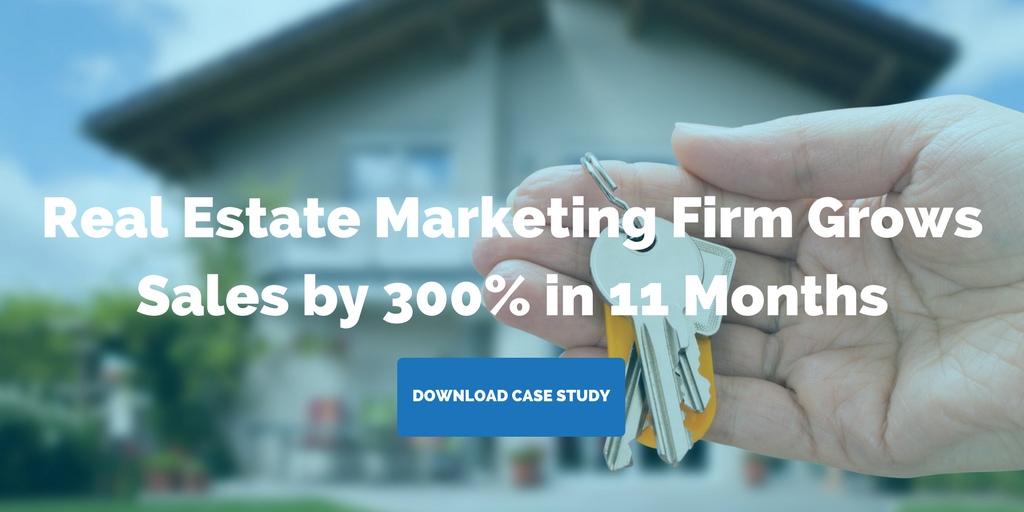Your search results for "Reliable CPC-CDE-RECERT Braindumps Sheet 🍳 Best CPC-CDE-RECERT Practice 🔚 Test CPC-CDE-RECERT Sample Questions 💉 Easily obtain free download of ▶ CPC-CDE-RECERT ◀ by searching on ☀ www.pdfvce.com ️☀️ ✊Exam CPC-CDE-RECERT Study Solutions"

Survey: Social Media Use in Luxury Real Estate
We want to hear from you!
Take our luxury real estate marketing survey.
Luxury real estate doesn’t exactly sell itself — if you’re a real estate marketer, you’re well aware of this fact. The relatively limited customer base and competitive marketplace make it crucial for luxury real estate brands to set themselves and their properties apart.
When it comes to marketing luxury real estate, social media can be one of the most effective tools in your toolbox. Since real estate is inherently personal, even at the corporate and luxury levels, marketers can use social media to cultivate productive relationships with leads. The problem is, there is a lot of misinformation out there about best practices in social media marketing for luxury real estate.
That’s where you come in. We need your help to get the latest information on how real estate companies like yours are using social networking to move luxury real estate. We want to know: which networks are you finding to be the most helpful in generating leads? What’s working? What’s not?
If your company markets luxury real estate, we invite you to take the survey. It should take less than 5 minutes of your time. Responses will be reported in aggregate, and no identifiable information (individual or company) will be shared with anyone.
Responses are due June 30, so act now so your voice is heard. Provide your email address, and we’ll share the results so you can see how your company compares to the industry at large.
Please contact [email protected] with questions.
Your search results for "Reliable CPC-CDE-RECERT Braindumps Sheet 🍳 Best CPC-CDE-RECERT Practice 🔚 Test CPC-CDE-RECERT Sample Questions 💉 Easily obtain free download of ▶ CPC-CDE-RECERT ◀ by searching on ☀ www.pdfvce.com ️☀️ ✊Exam CPC-CDE-RECERT Study Solutions"

Marketing Trend: Marketing Automation for Real Estate
Real estate marketers can use marketing automation to drive efficiency and be more successful in earning and converting leads.
As your real estate brand grows, more and more tasks fall on your plate and digital marketing can seem daunting and time consuming. But marketers know the importance of a digital marketing strategy, so how to juggle these demands? The answer is automation.
HubSpot recently reported that businesses using marketing automation to nurture leads received a whopping 451% increase in qualified leads. So how can you reap these benefits? Let’s take a quick look at marketing automation for real estate.
What is marketing automation?
Marketing automation is the process of automating certain repetitive marketing tasks. It’s designed to support multiple channels, so your marketing efforts (and your brand) stay consistent across the board.
More and more people searching for apartments and condos are looking for a personalized experience. This makes marketers’ jobs increasingly more difficult as they have to produce relevant and informative content mixed with personalized messages. Marketing automation can help provide custom lead-nurturing content that helps convert prospects to buyers.
Examples of marketing automation for real estate
Automation can be used in a variety of ways throughout the buyer’s journey. Start with a documented strategy to outline exactly what outcome you’re hoping to produce. What do you want your marketing automation efforts to accomplish for your real estate brand? Top marketing goals for content marketers include converting contacts/leads to sales, growing website traffic, and increasing revenue.
After you identify your goals, you can find marketing automation tools that align. Here are some examples:
- Chatbots
- Social media scheduling tools
- Thank-you, welcome, and other triggered-by-an-event emails
- Event reminders
- Email workflows
Benefits of marketing automation
Save time
One of the most obvious benefits of marketing automation is saving time. Having the ability to schedule social posts, automate email workflows, and answer questions on your website via chatbot allows real estate marketers to stay relevant without sacrificing other responsibilities.
Build brand awareness
It’s important for customers to recognize your real estate brand. Brand awareness builds confidence in your properties and what you’re selling. Using marketing automation can get your brand in front of new audiences, as well as keep you on the forefront of prospects you’ve already engaged with. Through emails, social media posts, and paid advertising your brand can continue to build brand awareness while you’re focusing on other aspects of the business (or having lunch!).
Data-driven approach
Most marketing automation tools offer data to track your marketing efforts. This data can determine which marketing efforts are working and which aren’t. From workflow emails to push notifications, marketing automation software can streamline your strategies and make them more efficient.
Final Thoughts
Marketing automation can provide your leads with more personalized experiences. That will increase the chances that they’ll buy (or lease). But it won’t take up more of your time. In fact, it will free you up to provide value in other areas that can’t be automated (like content creation). It’s really a win-win.
Related posts:
- Real Estate Marketing Trend 2019: Influencer Marketing
- Our 6 Favorite Marketing Automation Tools for Real Estate Marketers
- How to Increase Leads with Chatbots
Your search results for "Reliable CPC-CDE-RECERT Braindumps Sheet 🍳 Best CPC-CDE-RECERT Practice 🔚 Test CPC-CDE-RECERT Sample Questions 💉 Easily obtain free download of ▶ CPC-CDE-RECERT ◀ by searching on ☀ www.pdfvce.com ️☀️ ✊Exam CPC-CDE-RECERT Study Solutions"

Your Content Should Not Include a Sales Pitch. Do This Instead.
Trying to pass your sales pitch off as content will only hurt your content marketing efforts. Start helping potential buyers instead.
Think your blog is a refreshing new way to highlight your properties’ selling points? Do your blog posts include verbiage like “competitive rates,” “prime location,” or “investment opportunity?” Stop right there. Everyone you reach probably knows right away that you are trying to sell them something, and they will quickly move on.
As counterintuitive as it may sound, being “salesy” will make potential buyers look elsewhere, or run in the opposite direction — perhaps to your competition. The best way to win buyers and renters is to stop trying to sell. Content that helps prospective buyers envision themselves in your property is what will grow your business.
Nobody welcomes a sales pitch
Admit it: you tune out anyone that comes across as trying to sell you something. You get emails, voicemails, and social media updates with “information” that is really a not-so-cleverly disguised sales pitch. What do you do? Most likely you hit delete, or you do not read past the first sign of a sales promotion.
So you know deep down that “salesy” does not sell. Yet according to a recent study of 500 global marketers from the Economist Group, many content marketing programs are doing just that: being promotional throughout their content efforts. In fact, 93% of the marketers surveyed said they directly connect content to a specific product or service.
Prospective buyers see right through this trick. Like you, most of your potential investor base is turned off by an overt sales pitch.
Focus on your audience to increase yield
So what should your content be doing? Rather than forcing your properties on your potential investors, take the time to answer their questions. Be the expert advice they are seeking. Help them envision themselves in one of your properties. You can do this by:
- Keeping content informative and educational. Your content should hold value for your readers.
- Letting your content demonstrate expertise. It should give the reader a favorable impression of you and your real estate business. They should walk away trusting your ideas.
- Educating your readers about the amenities nearby and the neighborhood. Offer information about things to do nearby or events that make your location ideal for your target audience. For example, music lovers will love to know that they could be living near a concert venue; or parents will want to know about the local school system.
The philosophy of content marketing is to offer help, to educate, and, at times, to entertain your target audience. This is accomplished by focusing on your potential buyers’ needs and interests, not by overtly pitching your properties. When your buyers understand you’re not trying to force a sale at any cost, you gain their trust and respect, and this is what brings in sales.
Related posts:
- Marketing vs. Sales: Why There Shouldn’t Be a Competition
- Content Marketers: Don’t Fire Your Sales Staff
- Most B2B Buyers Use Social Media in Their Research
Your search results for "Reliable CPC-CDE-RECERT Braindumps Sheet 🍳 Best CPC-CDE-RECERT Practice 🔚 Test CPC-CDE-RECERT Sample Questions 💉 Easily obtain free download of ▶ CPC-CDE-RECERT ◀ by searching on ☀ www.pdfvce.com ️☀️ ✊Exam CPC-CDE-RECERT Study Solutions"

Google Analytics for Real Estate Marketers – 4 Steps to Get Started
Google Analytics is an extremely effective tool for real estate marketers to gain insights and shape strategy. These four tips will help get you started.
Highlights:
- Start by choosing what metrics to track.
- Figure out what works and what doesn’t.
- Paint a picture of your audience using hard data.
When it comes to gaining insights into real estate leads, Google Analytics is one of the most powerful tools out there right now. This robust, comprehensive, analytical tool determines how web users are interacting with your digital assets, including social media. The data that Google Analytics for real estate provides gives you invaluable insights into how your audience is interacting with your content, as well as how your content is performing over time.
Because this tool is extremely comprehensive, the options can be overwhelming at first glance. Understanding how to properly deploy this resource, and the metrics it provides, is your best bet for delivering value to your target audience, and effectively nurturing leads.
Here are four steps to get your marketing efforts started using Google Analytics for real estate.
1. Decide which metrics to track and identify key metrics
When you first start using Google Analytics, it’s easy to be overwhelmed by the sheer number of choices available to you for analyzing your real estate website visitors’ activity. It can seem tempting to track every available metric, gaining huge amounts of data. But your time and resources are much better spent if you take a step back and identify the right marketing reports for your real estate business.
As a benchmark, Phase 3 Enterprises suggests that real estate marketers track these six reports:
- Channel Report
- Source and Medium Reports
- Users Flow Report
- Frequency and Regency Reports
- Location Report
- Age and Gender Reports
Once you’ve chosen which metrics your real estate business should be tracking, it’s time to identify two or three metrics that will be your touchstones. These are the metrics that are critically important to the performance of your website and should monitored and analyzed regularly.
2. Start with the big things
Is there a page on your website that gets a large amount of traffic? That’s where you should be concentrating. Use key metrics to determine why that content is specifically intriguing to your users, and what led visitors to click and spend time there. For example, if one piece of content on your site outperforms another, ask yourself questions like:
- Does a higher click-through rate correlate with timing of emails sharing the content, social media posts, etc.?
- What are the top traffic sources for high performing content?
- How long are users spending on your content?
You get the picture. In short, if you identify the right questions to ask, Google Analytics for real estate will offer you the data to answer them—in turn giving you the tools to optimize your digital assets.
3. Find out where your website traffic is coming from
In a perfect world, users are visiting your site from multiple sources, instead of a single or just a few traffic streams. Gaining an understanding of where your traffic is coming from lets you devote resources to top-performing sources and adjust your efforts where they aren’t gaining optimal results.
Select “Overview” under the “Acquisition” menu to determine how much of your traffic is organic, social, from referrals, etc. The Channel Report will give you further details on where your visitors are coming from, as well as information about how traffic from various sources engages with your site.
4. Build an audience profile
Ultimately, one of the most important things Google Analytics can capture for you is a picture of your audience. This includes where they’re located, how they engage with your website, demographic data like age, and other buyer preferences. Some key audience characteristics to be on the lookout for:
- How much of your audience is new visitors vs. returning visitors?
- What devices is your audience using to access your digital assets?
- Where are your visitors geographically located?
The more you use the data to understand your audience, the more you’ll be able to optimize your digital assets to meet their needs and build and expand your audience base.
The bottom line
Google Analytics is your superpower when it comes to real estate marketing. No other tool gives you more comprehensive insights into your audience behavior, content performance, overall site performance, and more. Start using this tool today, and let data drive your real estate marketing efforts.
Related posts:
- How to Measure Social Media ROI with Google Analytics for Real Estate
- What Metrics Should You Track in Real Estate Marketing?
- How Pay-Per-Click Helped This Property Get 54 Leads
Your search results for "Reliable CPC-CDE-RECERT Braindumps Sheet 🍳 Best CPC-CDE-RECERT Practice 🔚 Test CPC-CDE-RECERT Sample Questions 💉 Easily obtain free download of ▶ CPC-CDE-RECERT ◀ by searching on ☀ www.pdfvce.com ️☀️ ✊Exam CPC-CDE-RECERT Study Solutions"

4 Real Estate Blogging Tools You Should be Using
If you’re a real estate marketer, you should be blogging. These four free tools can help you get your real estate blog started.
A real estate blog is one of the most effective ways to generate leads, improve brand recognition, and market your properties. At Fronetics Real Estate, we love blogging for tons of reasons. For one, you get plenty of bang for your buck: once you publish an effective post, it can continue generating leads even years into the future.
Are you ready to up your blogging game? Here are 4 of FRE’s favorite free online tools for real estate blogging that you can start using today.
Generate a topic for your real estate blog
Sometimes the ideas just flow, but often, coming up with fresh, engaging topics is like pulling teeth. The good news is, Hubspot’s Blog Ideas Generator is here to help.
Think Mad Libs: give HubSpot three nouns, and this powerful tool will give you topic ideas. It’s a great way to focus on topics where you want to cultivate your authority and to generate real estate blog post ideas for a topic cluster, in line with existing pillar content.
Is your headline engaging?
Judging a book by its cover may be a bad idea, but when it comes to blogging, the headline of your post is hugely important. So, regardless of how compelling your content is, if you don’t have an effective headline, it’s likely not reaching its audience potential.
ShareThrough has a tool that can help. The SharedCount Headline Analyzer lets you enter your idea for a title, and helps you refine and improve your headline. Run it until you get a good score (at least 75), using their tips as you go to edit and optimize the title of your real estate blog post.
Bump up your image game
We live in a world where, increasingly, the visual is key. A picture is worth a thousand words—but only if it’s a good one! Too often, bloggers forget this crucial aspect of online story-telling and settle for tired stock photos or the first result that comes up on Google Images.
One of the best online graphic editing and creation tools out there is Canva. We love this tool, which lets you save your brand colors and fonts, and create beautiful, original graphics for blog images, Facebook ads, postcards, eBooks, and more.
Boost your SEO
Generating organic traffic with your content is one of the main benefits of blogging. Your content helps inform search engines about your site, improving your rank in relevant search queries. But writing SEO-friendly content isn’t always a walk in the park.
Luckily, there are tools like Yoast SEO to help. This plugin helps you optimize your content, as it analyzes your writing, and gives you suggestions for optimizing it for Google’s algorithm.
We’ve said it before and we’ll probably say it again—when it comes to real estate marketing, a real estate blog is one of your most powerful assets. Give these tools a try—and let us know in the comments how they work for you.
Related posts:






